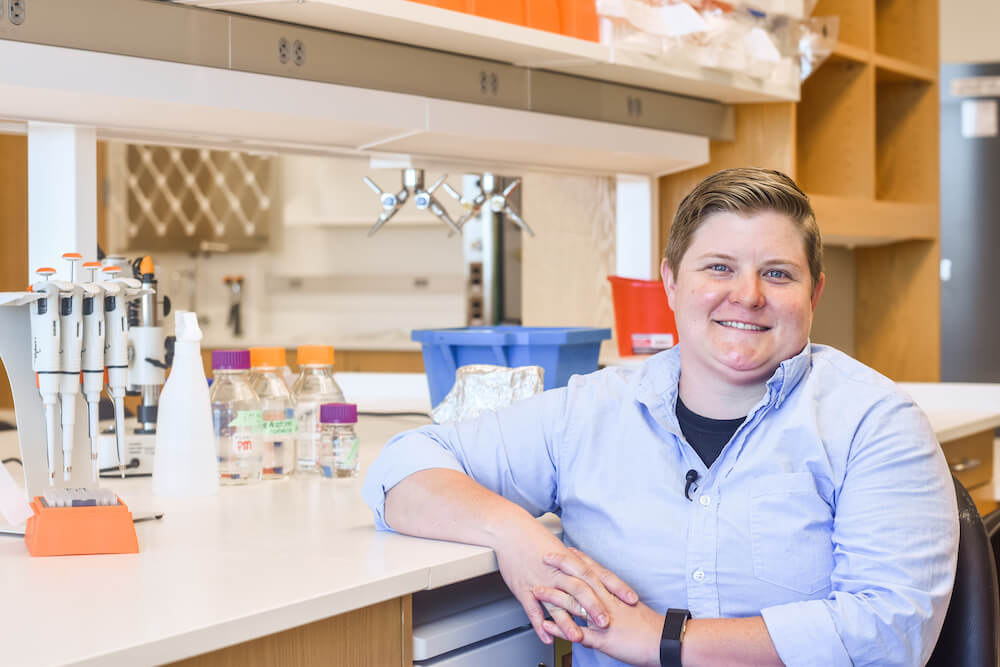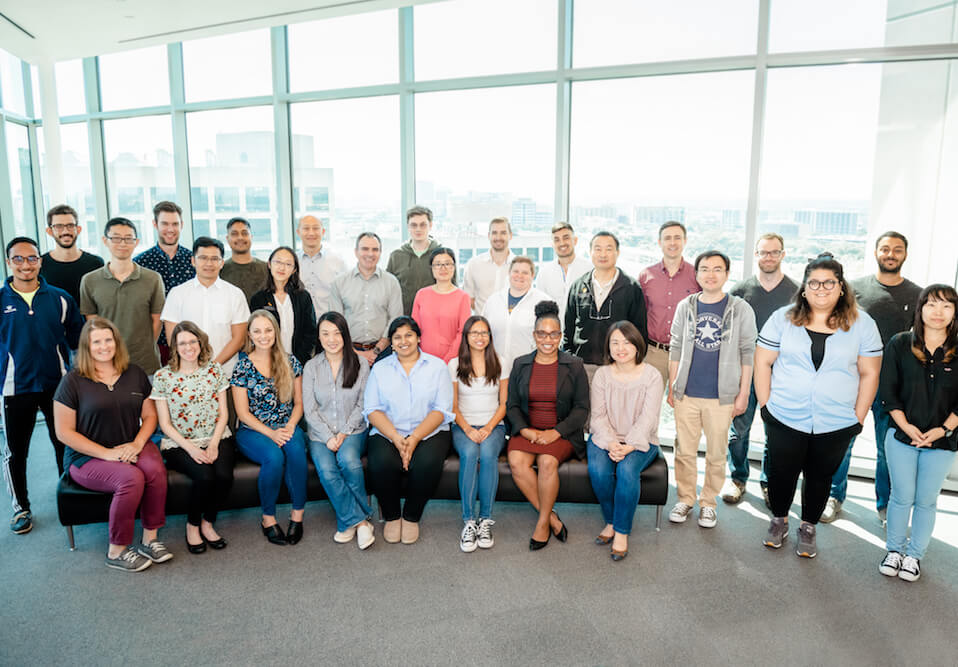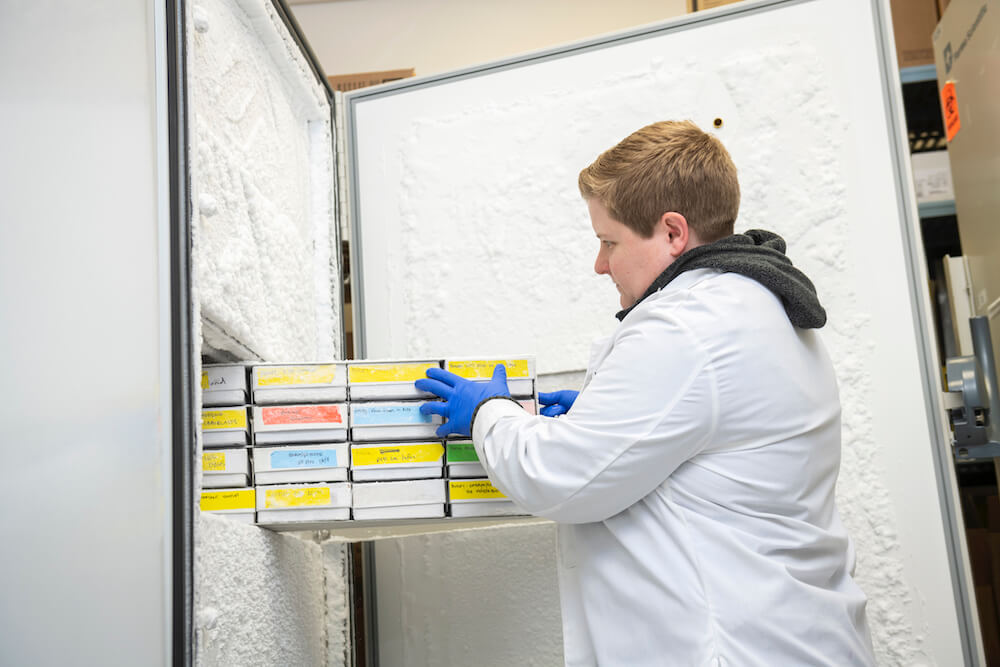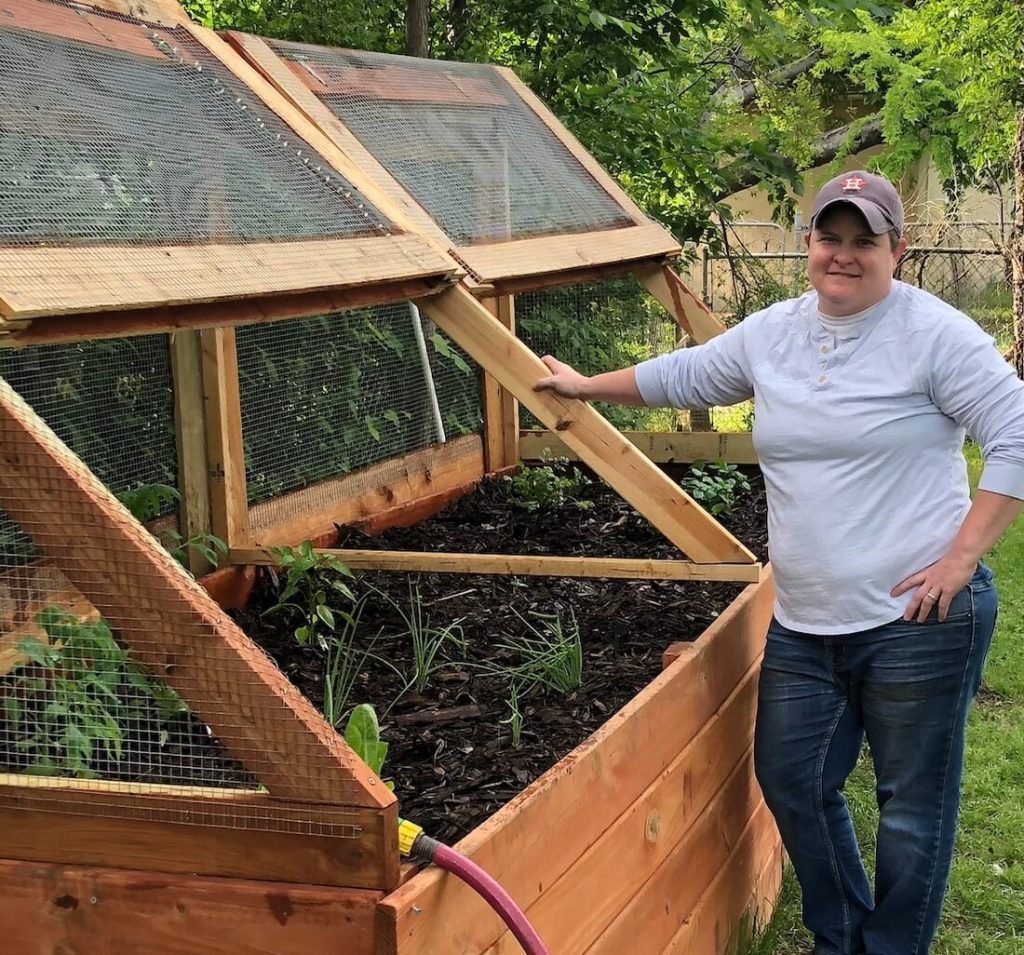May 5, 2020
Ashley Solmonson, Ph.D., is a Ruth L. Kirschstein National Research Service Award (NRSA) Fellow in the DeBerardinis lab. In CRI, she studies how metabolism supports fetal growth during pregnancy and how genetic defects in metabolism can disrupt healthy development. Her work will lead to the development of better diagnostic tools and treatment options to help children and their families.
What are you researching?
I study how metabolism supports fetal growth during pregnancy and how genetic diseases of metabolism, like inborn errors of metabolism (IEMs), can disrupt that development. We know that in many cases, when IEMs are identified early and treated properly, children can go on to live happy and healthy lives. In other cases, these mutations can impair normal development, leading to congenital defects and lifelong impairments in organ function. I am hopeful that by better understanding how metabolism directs and supports developmental events throughout gestation, we can find ways to screen for and treat IEMs during pregnancy. This expands the likelihood that children diagnosed with these disorders can thrive and develop into happy, healthy kids.


How did you end up in CRI?
Training under Ralph DeBerardinis was my first choice when I was looking for a postdoc. I knew that if I wanted to go on to study metabolism in my own lab, it was essential to learn the skills of isotope tracing and metabolomics, and Ralph is a recognized leader in this field. When Ralph mentioned the Genetic and Metabolic Disease Program (GMDP) in CRI during my interview, I was immediately interested in studying inborn errors and their impact on systemic metabolism. When I came to CRI, I was blown away by the resources available here and the fantastic collaborative relationships among the different labs. I consider myself very lucky to have the opportunity to train in such a world-class environment.
What about being a researcher is different than people might expect?
Being a researcher is actually a combination of a lot of different jobs and skills. You obviously need to know the basic science behind what you are studying, but you also need to be able to communicate your science effectively. This means being a good writer, being comfortable with public speaking, and knowing graphic design to illustrate your science. Running your own lab also requires the ability to fundraise for your lab or institution and to manage people and money well. It’s almost like running your own small business. People often don’t think about all the behind-the-scenes work involved in being a research scientist. Our jobs don’t stop at the lab bench.

How did you become interested in your field?
I worked as a technician in several labs after I got my undergraduate degree and used that time to hone in on what I wanted to study in graduate school. I started in a plant biology lab studying algae, but I knew I wanted to work with mammals so I moved to a lab that studied liver growth. This is where my interest in metabolism first started. By the time I started graduate school, I knew that I wanted to study metabolism and cancer or obesity so I found a lab that allowed me to do my dissertation on those topics. After finishing grad school, I realized there were techniques I needed to learn if I wanted to continue studying metabolism in my own lab; that is what led me to Ralph’s lab.
What do you like to do when you’re not in the lab?
I really enjoy gardening. I would love to be more sustainable and grow my own vegetables and fruits. There is something so optimistic about starting seedlings every spring and shepherding them along to become full-grown plants. I also really enjoy cooking. My wife is vegan, so it’s fun for me to try new recipes and explore new types of cuisine.

© 2025 Children’s Research Institute Dallas Texas | Privacy | Site Policies